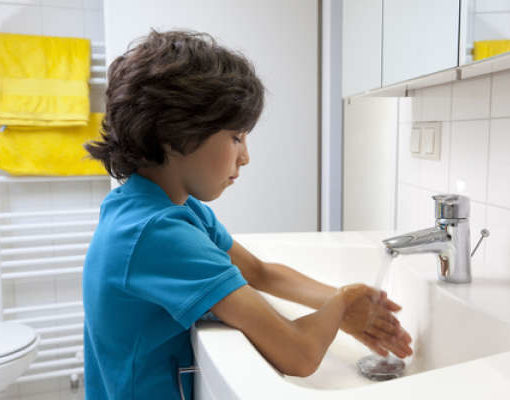Whether your child was just recently diagnosed with autism or perhaps they were diagnosed years ago with a developmental delay, there are some great services available to help support their needs behaviourally like ABA (Applied Behavioural Analysis) and IBI (Intensive Behavioural Intervention). Unfortunately, you may have already felt that there is not a lot of options for support with the medical side of autism.
So what do I mean by this?
Research shows that there are some ‘common’ underlying conditions amongst children/people with autism, such as a higher prevalence of GI concerns like constipation1, and sleep disturbances including bedtime resistance and sleep anxiety. 2
Knowing that there are common medical concerns amongst children with autism, and that the associated symptoms can be affecting their mood, behaviour and overall wellness, parents need to ensure that their child is getting proper support in all aspects of their child’s health.
“Just because your child with autism may not be able to tell you they’re experiencing pain, doesn’t mean it’s not there.”
Here are the top 4 health tips you should be doing to help your child with autism:
- Healthy Eating – “diet”, meaning the food we eat, is a core foundational part of health. It is quite common for kids with ASD to have sensory issues that may make them very picky eaters. You want to make sure they are getting healthy, clean food, and avoiding all preservatives, additives and sugars. Start with offering a variety of vegetables, fruits, and good sources of protein. Incorporating soups and stews made with bone broths is an easy way to get nutritious foods in that is easy to digest. The SCD (Specific Carbohydrate Diet) or Paleo diet are recommended, as they remove many of the foods, like dairy and grains, that can cause an increase in unregulated behaviours.
- Bowel support – Digestive concerns such as constipation and diarrhea is a common concern in children with ASD, and helping them eliminate regularly is something that can have a huge impact on their daily life. When we experience digestive upset and pain constantly, it can affect our overall mood, behaviour and cognition. Ensure your child is drinking plenty of water and getting enough high fibre foods is a good start. If you feel this may be an issue consider getting a bowel x-ray to fully assess the digestive concerns. Many times children will be having a daily bowel movement but on X-Ray there is retained stool causing discomfort.
- Detox support – A daily function of our body is to ‘detoxify’, or process all of the external toxins it encounters and turn them into substances that are more easily excreted. Most of this process occurs in the liver, kidneys and bowels. It has been shown that kids with autism may have impaired detoxification and this can lead to increased swimming, irritability, cognitive impairments and other symptoms. A great way to start supporting improved detoxification is to use regular epsom salt baths, as the magnesium sulphate can assist in the sulfation process in the liver.
- Specific nutrients – there are MANY supportive nutrients for people with autism and developmental delays, and as each persons needs are different…so are the specific nutrients they require. Some of the foundational nutrients that most children with ASD can benefit form include, probiotic, omega-3 fish oil, vitamin B12 and magnesium. As a naturopathic doctor with a focus on children with ASD, each child’s plan will be based on their needs, such as a child with speech delay versus a child with aggressive behaviour.
To ensure your child is getting the best care possible, ensure they are being supported in all aspects of their health for their special needs.
For more information, please contact Dr. Danielle ND.
- Pang KH, Croaker GD. Constipation in children with autism and autistic spectrum disorder. Pediatr Surg Int. 2011 Apr;27(4):353-8. doi: 10.1007/s00383-010-2680-8. Epub 2010 Aug 10. PMID: 20697898.
- Chen H, Yang T, Chen J, Chen L, Dai Y, Zhang J, Li L, Jia F, Wu L, Hao Y, Ke X, Yi M, Hong Q, Chen J, Fang S, Wang Y, Wang Q, Jin C, Li T. Sleep problems in children with autism spectrum disorder: a multicenter survey. BMC Psychiatry. 2021 Aug 16;21(1):406. doi: 10.1186/s12888-021-03405-w. PMID: 34399715; PMCID: PMC8365936.





